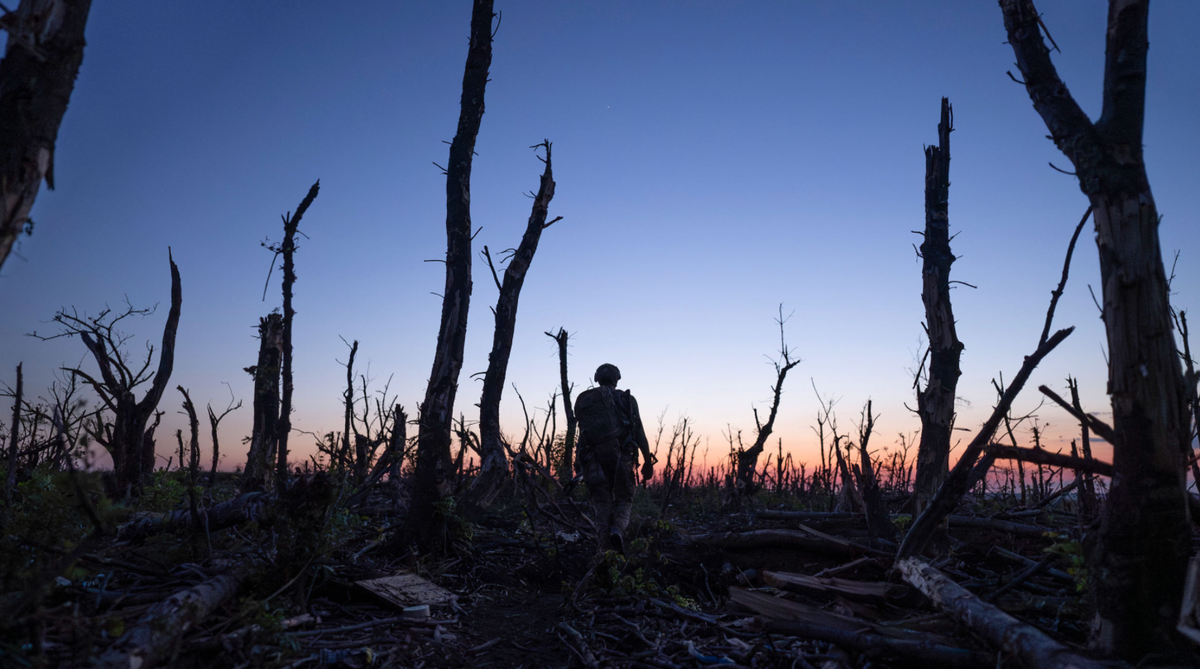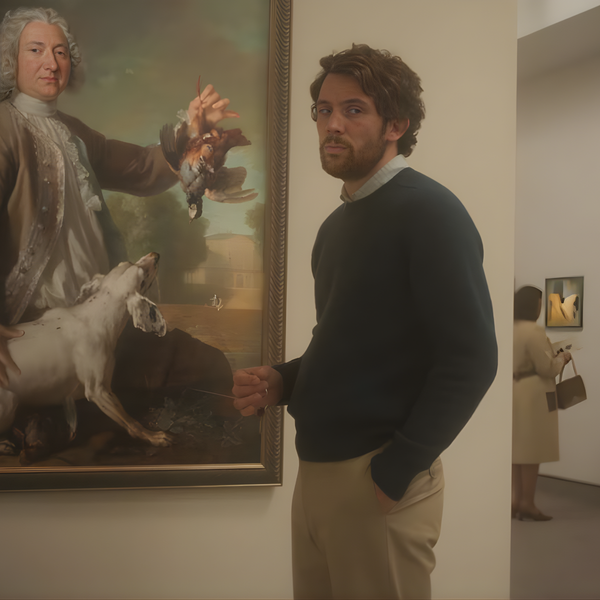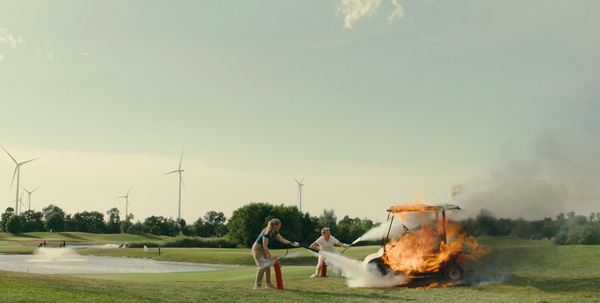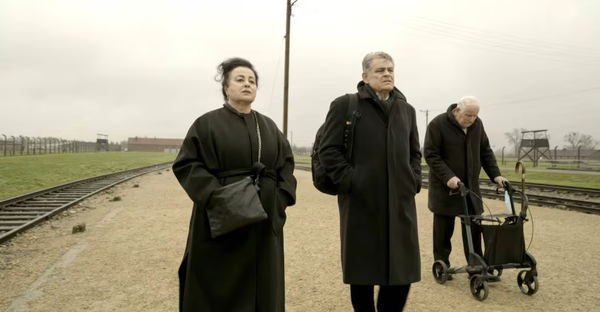Peter Bodie witnesses war up close in his review of 2000 Meters to Andriivka.
2000 Meters to Andriivka is an unusual documentary film. It is hard to classify. It is a ponderous yet fast-moving film essay about real-life war and real-time death. One minute a soldier is alive and talking. Then, without a sound, he is pronounced dead by a soldier who was standing beside him. We see a Russian soldier’s intact body flung high, pirouetting into the air, when a suicide drone explodes in his bunker. There are no stuntmen involved. This is all real, in real time. No trick photography. The camera is the ruthless witness. This is definitely not Charlie Sheen in Platoon or any other war movie. This is real close-up footage. We have seen real footage from Vietnam, but it was always sanitised. Shot from a distance and after the fact, not in the middle of a storm of bullets and bombs. 2000 Meters happens right in front of the cameras, in front of your eyes.
There is an abundance of online footage documenting the war in Ukraine, for example this CNN report, but it does not convey the urgency of close-in, face-to-face combat. The online footage stays at a convenient and safe distance and reality is diminished.
A platoon of Ukrainian soldiers, mostly enthusiastic volunteers, fight their way through a forested corridor to the village of Andriivka, 2000 metres away. The village is demolished, nothing but half-shells of homes remain. The forest is the only available route as the adjacent fields are mined. If the brigade can retake this village, they will have impacted the Russian transport system. For the most part, these front-line soldiers are being shot at, and returning fire, in a particular immersive sequence.
The motivation of the Ukrainian soldiers is crystal clear. They are fighting for their homeland, their families, and their freedom. In contrast, a Russian captive is asked why he is fighting in Ukraine. His plaintive answer is: “I don’t know.”
No specific message is delivered by the film or the commentary. There is no obvious attempt, or need, to draw sympathy for the real-life people we see on screen. They are fighting for their lives, they are there willingly, and they are willing to die for their country. As the commentary mentions, in a matter-of-fact style, many of them have died since the completion of filming.
The film was directed by the multi-award-winning Ukrainian Mytyslav Chernov. He won a Best Documentary Oscar in 2024 for 20 Days in Mariupol. Born in Kharkiv, in what was then part of the Soviet Union, in 1985, he is obviously a staunch Ukrainian. But he does not make this his focus. This is a deeply personal film but he maintains a dignified, documentarian, arm’s-length stance rather than delving into the rights and wrongs of Ukrainian history and its shifting borders. Given that he is in his early forties, he still has years to add to his already formidable body of work. His main job is as a visual journalist for the Associated Press, so he has the perfect platform to gather more information and footage.
What is the main takeaway of 2000 Meters to Andriivka? Is it the futility of war? Maybe so, but not if you are at war with an aggressor who wants to take over your homeland. The question here is why. Why does this conflict, in the 21st century, have to be settled by First World War-style trench warfare involving young men on both sides? It is clearly insane, yet it continues.
2000 Meters to Andriivka is a very challenging piece of work, but yet feels strangely calm. Probably because it is so starkly factual. There's no skewed editing, no spin. Genuine blood and emotions are on open display. It is not a harrowing experience to watch 2000 Meters, perhaps, numbing is a better word.
One of the soldiers asks his commander: “What if this war is until the end of our lives?” Now that is a harrowing thought.
2000 Meters to Andriivka is available to stream online now.




